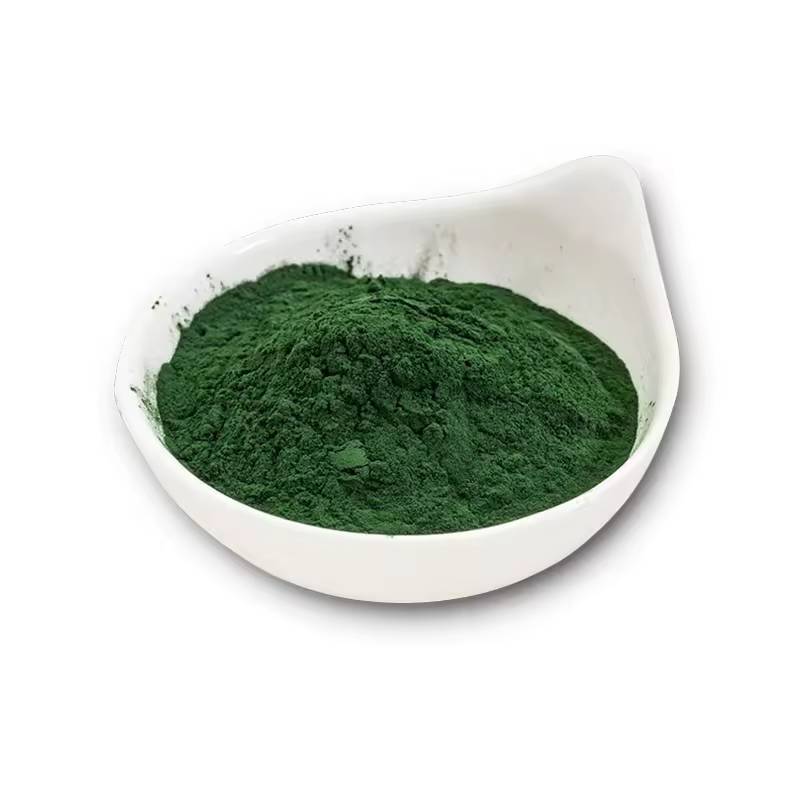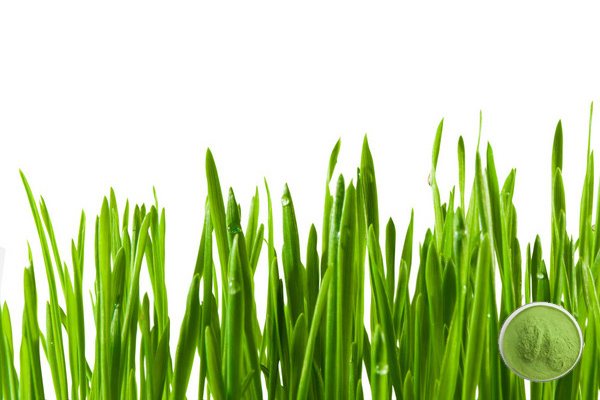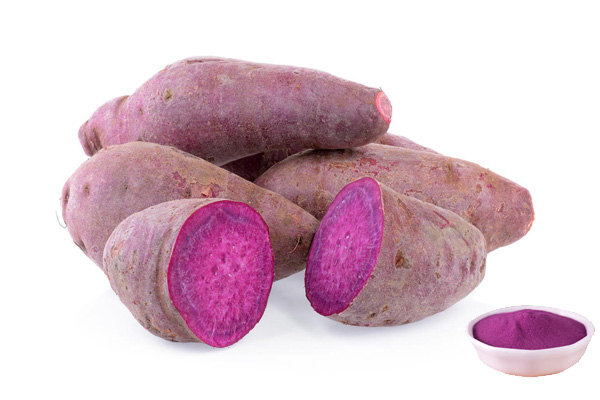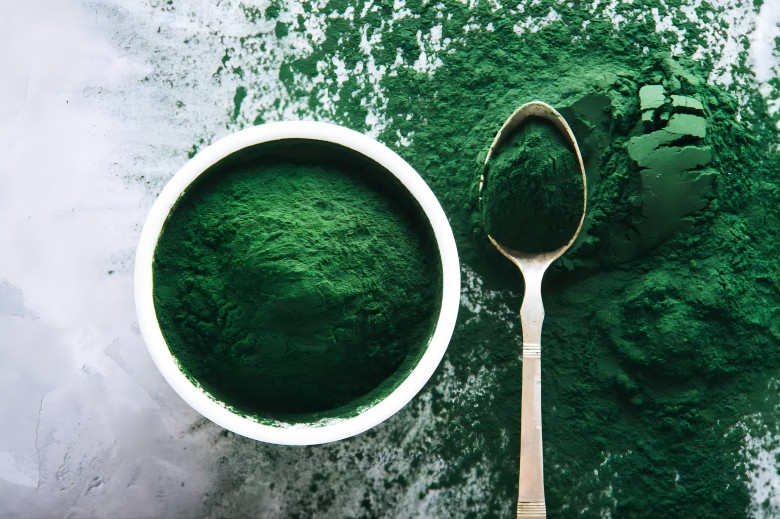飼料グレードのスピルリナ粉末55%タンパク質
有効成分:タンパク質
分析:55%
Testing Method: Kjeldahl決定
外観:濃い緑色の微粒子
残留農薬:(ec) no 396/2005規格に準拠
- 記述
- データシート
- 証明書
-
飼料グレードスピルリナ粉末とは何ですか?
スピルリナは、人類が今まで自然界で発見した最も完全な栄養と最も包括的かつバランスの取れた緑の自然食品です。◆ほど高くタンパク質の含有量が65%以上いろいろなアミノ酸を含める人体で定められた割合的人体向けには最適な活用を吸収に含む安息香酸9種、欠かせない人体やにより合成処理できない人体内容はほぼ同じ国連によって定められた理想的な標準また、さまざまなビタミン、ミネラル、葉緑素が豊富で、青や他の生物学的に活性な物質の源です。
グリーンスプリング技術は、スピルリナobtususususの純粋な、無汚染、高品質の藻類栽培基地から作られた飼料グレードのスピルリナ粉末をスプレー乾燥、ふるい、殺菌を通じて提供しています。水溶性性たんぱく質が豊富、EAA(18種)、γ-linolenic酸(天然饱和脂肪酸)、β-carotene、ビタミン(VB12内容は最高)超酸化物イオン野郎クロロフィル、などを多く含む。動物生物の免疫力を高めることができ、高レベルの動物飼料添加物です。
2000年に設立されたグリーンスプリング社は、中国を代表するバイオ企業だ。それはiso、haccp、およびその他の品質基準に従って生産し、その製品はすべて、eu ec396、eu 2023/915基準、および最高の溶媒残渣基準に準拠した最高の国際的な業界標準で実装されています。グリーンスプリングはhalal、kosher、cosmos、brc、ifs、fda、isoなど多くの認証を取得しています。権威あるサードパーティのテストレポートが利用可能です。
规格:
商品名
スピルリナ粉
有効成分
タンパク質
化学検査
55%
Testing Method
Kjeldahl決定
外観
濃緑の微粉
残留農薬
(ec) no 396/2005規格に準拠しています
法が定め
euの規制に準拠しています。
Learn More About Our Comprehensive Solutions for Compliant and Consistent Spirulina Extract Ingredients。
見積もりをお探しですか?Benefits:
Rich in Nutrients
Spirulina protein accounts for 50% -70% of cell dry weight and has a digestion and absorption rate of over 95%. It is a high-quality source of protein, surpassing meat, eggs, milk powder, grains, and soybeans. At the same time, there is a rich variety of amino acids, rich in all essential amino acids required by the human body, and the composition is reasonable, among which leucine, isoleucine, and valine have the highest content.
Rich in Chlorophyll
Chlorophyll in Spirulina is high in quantity and quality, accounting for 1.1% of the algal body, which is 2-3 times more than most terrestrial plants and 10 times more than common vegetables. The type of chlorophyll contained in Spirulina is mainly chlorophyll a. The molecular structure is very similar to human hemoglobin, which is the direct raw material for the synthesis of human hemoglobin.
Anti-inflammatory
The anti-inflammatory effects of Spirulina are mediated through its ability to block the release of histamine and other inflammatory substances from the immune system. Polyphenolic antioxidants and phycocyanin in algal cells exert their anti-inflammatory and antioxidant effects by integrating the NrF2 and NF-kB regulatory pathways; lipid extracts and alkanes also inhibit the expression and secretion of pro-inflammatory factors (TNF-alpha, IL-1beta, and IL-6) by suppressing the NF-kB pathway. A clinical trial showed that allergic rhinitis treated with spirulina significantly improves its symptoms, including improvement of runny nose, sneezing, nasal congestion, and itchy nose.
Immunity Regulation
Spirulina has a strong enhancing effect on the human immune system. Studies in different animal models, such as mice, chickens, and fish, have shown that Spirulina can improve the function of immune cells and immune organs, enhance the ability to function normally under the environment of infectious agents and toxins, and, at the same time, promote the value-added of bone marrow cells and enhance the production of IL-1 and antibodies by splenocytes cultured in vitro. Among them, Spirulina polysaccharides had a significant effect on increasing the number of antibody-producing cells and NK cell activity.
Microbiological Regulatory Activity
The microbiomodulatory activity of Spirulina prevents ecological disorders. The antimicrobial activity of Spirulina, on the one hand, protects the host from harmful bacterial infections, avoiding inflammatory bowel disease and metabolic and immune disorders, and on the other hand, promotes the growth of probiotic bacteria, thus restoring the normal microbial balance. Spirulina inhibits the growth of some Gram-negative bacteria (Escherichia coli, Pseudomonas aeruginosa, Proteus vulgaris) and Gram-positive bacteria (Staphylococcus aureus, Bacillus cereus) and produces extracellular metabolites with antimicrobial activity, which are particularly resistant to Streptococcus intestinalis, Staphylococcus epidermidis, Candida albicans, Staphylococcus aureus, and Escherichia coli.
On the other hand, Spirulina has a promoting effect on the growth and preservation of Lactococcus, Bifidobacterium, Lactobacillus acidophilus, Lactobacillus bulgaricus, Lactobacillus casei, and Streptococcus thermophilus. In vivo application studies also showed that microbiota composition, metabolism and immune disorders in the gastrointestinal tract were significantly altered in mice consuming Spirulina. Therefore, the combination application of Spirulina and probiotics has stronger immune and intestinal health regulating function than probiotics alone. It can be seen that Spirulina has an important role in improving animal and human health, changing the composition of intestinal flora, and promoting the growth of beneficial flora.
Applications:
For Feed Product:
Spirulina powder can be used for high-grade feed additives in addition to direct consumption as food or additives. Using Spirulina with feed to feed shrimp seedlings, and young abalone, compared with feeding with conventional feed, the survival rate of seedlings greatly improved.
In Cosmetics:
The polysaccharides and bioactive substances in Spirulina can reduce the formation of lipofuscin in tissues by scavenging free radicals in human body and reducing lipid peroxidation, thus reducing pigmentation, wrinkles, etc. It has the effects of moisturising, anti-aging and anti-ultraviolet rays. And spirulina will not stimulate the skin and produce allergic reactions, is a good cosmetic beauty products.
In the Food Field:
Spirulina powder is nutritious, rich in protein and a variety of amino acids, and has been used in a wide range of foods. Algae of the genus Spirulina have been widely used in the manufacture of pasta. The Spirulina-added products are characterized by enhanced nutritional, organoleptic, and therapeutic benefits compared to pasta without Spirulina.
-
Get Your Free COA


 英語
英語 フランス
フランス スペイン
スペイン ロシア
ロシア 韓国
韓国 日本
日本












